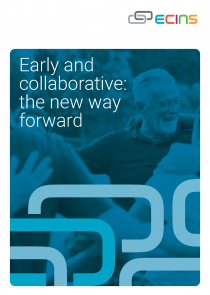Issue
Chichester District saw 52 unauthorised encampments during the period 1st February 2013 to 1st October 2013. The encampments were spread across the District and on a mix of private land and local authority land.
Whilst some of the encampments were present, reports were received regarding anti-social behaviour which included;
- Generators being run all through the evenings causing issues for people trying to sleep
- Abusive behaviour towards residents of the local community and the encampments
- Fly tipping
- Human waste being left in public areas
These reports were made to various agencies, including Sussex Police, Chichester District Council, West Sussex County Council, Environmental Health and local Parish Councils.
Many of the encampments were the same families moving across the District and it was important that agencies had a good understanding of their particular needs and welfare issues to enable appropriate support to be given.
With all agencies working independently, many reports were duplicated, meaning repeat visits to groups to deal with similar issues. This led to a lack of confidence from the groups in the agencies dealing. This situation also meant a delay in dealing with incidents as agencies were often played off against each other.
The Approach
ECINS was a vehicle which enabled a more joined up multi-agency approach to the management of a particularly sensitive issue.
ECINS played a vital role in enabling agencies to talk to each other and manage the complex issues surrounding these encampments.
When an encampment was set up a site visit was conducted by Sussex Police in conjunction with a member of Chichester District Council’s Community Safety team where possible. This visit was to obtain the information needed to make a full assessment of whether Police powers under the Criminal Justice and Public Order act would be used or whether this would require a civil eviction. Information included:
- Landowner details
- Persons and vehicles present on the land
- Has any damage been caused to the land?
- Are there any welfare issues that would have an impact whilst they were at the location?
Once this information was obtained, we were then able to make contact with the person responsible for the land, whether that was private or Council, to offer advice regarding the eviction procedure.
ECINS provided the platform for all information to be recorded in one place so that all agencies had access and could update with any new information received regarding the unauthorised encampment. ECINS helped in keeping everybody updated with current events and information.
A separate ECINS case was opened for each family group in order that relevant welfare needs could be documented and shared as appropriate. We were also able to keep track of proceedings with regards to the eviction process, which enabled accurate updates to be given to concerned parties. A record of where each group had been previously was also recorded, as they were not allowed to return to a location for a set period of time after they had been evicted.
The Result
E-CINS enabled all agencies to remain actively involved in ongoing developments and monitor:
- Any calls regarding the unauthorised encampment from local residents or members of the public
- The eviction process
- The clear up procedure after the unauthorised encampment had been removed
ECINS allowed everybody involved to identify certain issues and communicate them with other agencies for action as was necessary. It also enabled a day to day account of what each agency was doing to deliver the best service possible.
Following the last unauthorised encampment on District, the data captured in ECINS allowed agencies to review the situation and consider the necessity for both a local authority budget to assist parish councils with civil evictions and the requirement for a transit site to be developed locally.


